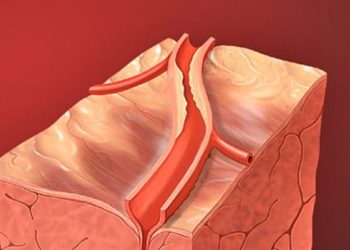PCSK9 inhibitors unlikely to be cost-effective
1. For patients with atherosclerotic cardiovascular disease, PCSK9 inhibitors, either in monotherapy for statin-intolerant patients or in addition to statin therapy, was less cost-effective than adding ezetimibe.
2. Treating patients with heterozygous familial hypercholesterolemia with the addition of PCSK9 inhibitors was also less cost-effective than ezetimibe.
Evidence Rating Level: 3 (Average)
Study Rundown: PCSK9 inhibitors act to lower circulating LDL by indirectly increasing LDL receptors on the cell surface. While this therapy was found to be effective in reducing LDL and preventing atherosclerotic cardiovascular disease (ACVD), it is unclear if the high cost of these medications would represent a cost-effective method for treating patients with either ACVD or heterozygous familial hypercholesterolemia (FH). This study utilized the Cardiovascular Disease Policy Model and multiple sensitivity analyses to assess the cost-effectiveness of different medication strategies. It was shown that adding PCSK9 inhibitors to statin therapy, or using them as monotherapy for statin-intolerant patients, was well above the generally accepted $100,000 per quality-adjusted life-year (QALY) cost benchmark. This held true for both ACVD and heterozygous FH patients. In fact, the cost would need to fall by more than 3-fold in order to approach the $100,000/QALY standard.
This projection considered many variables in comparing the cost-effectiveness of PCSK9 inhibitors to other medication strategies, and found that none of the proposed scenarios made PCSK9 inhibitors cost-effective at 2015 prices. While these are only estimates based on limited clinical data, it seems that PCSK9 inhibitors are unlikely to be widely accepted by insurance companies without a significant reduction in price.
Click to read the study in JAMA
Relevant Reading: Effects of proprotein convertase subtilisin/kexin type 9 antibodies in adults with hypercholesterolemia: a systematic review and meta-analysis
In-Depth [cost-effectiveness modelling study]: This study utilized several data sources to estimate the cost-effectiveness of PCSK9 inhibitor therapy, including the Cardiovascular Disease Policy Model, the National Health and Nutrition Examination surveys (NHANES), literature estimates of the absolute reduction of LDL with different medications, and multiple studies detailing health care costs. After factoring in drug costs and health care savings from reduced cardiovascular events, the addition of PCSK9 inhibitors for patients with FH would cost $503,000 per QALY, as compared to the addition of ezetimibe. For ACVD, addition of PCSK9 inhibitors over ezetimibe would increase costs to $414,000 per QALY. One-way sensitivity analyses varying drug cost, analytic horizon, discount factor, magnitude of LDL reduction, and proportion of statin-intolerant patients were unable to provide a scenario where PCSK9 inhibitors cost below $150,000 per QALY. In addition, assessing the use of PCSK9 inhibitors in multiple scenarios, such as changing parameters based on drug-specific clinical trials without regard for LDL levels, incorporating alternative QALY estimates, stopping incremental treatment above 75 years of age, or modeling a decrement of QALY based on multiple subcutaneous injections or adverse effects, were also unable to find a scenario where PCSK9 inhibitors were cost-effective.
Image: CC/Wiki
©2016 2 Minute Medicine, Inc. All rights reserved. No works may be reproduced without expressed written consent from 2 Minute Medicine, Inc. Inquire about licensing here. No article should be construed as medical advice and is not intended as such by the authors or by 2 Minute Medicine, Inc.









